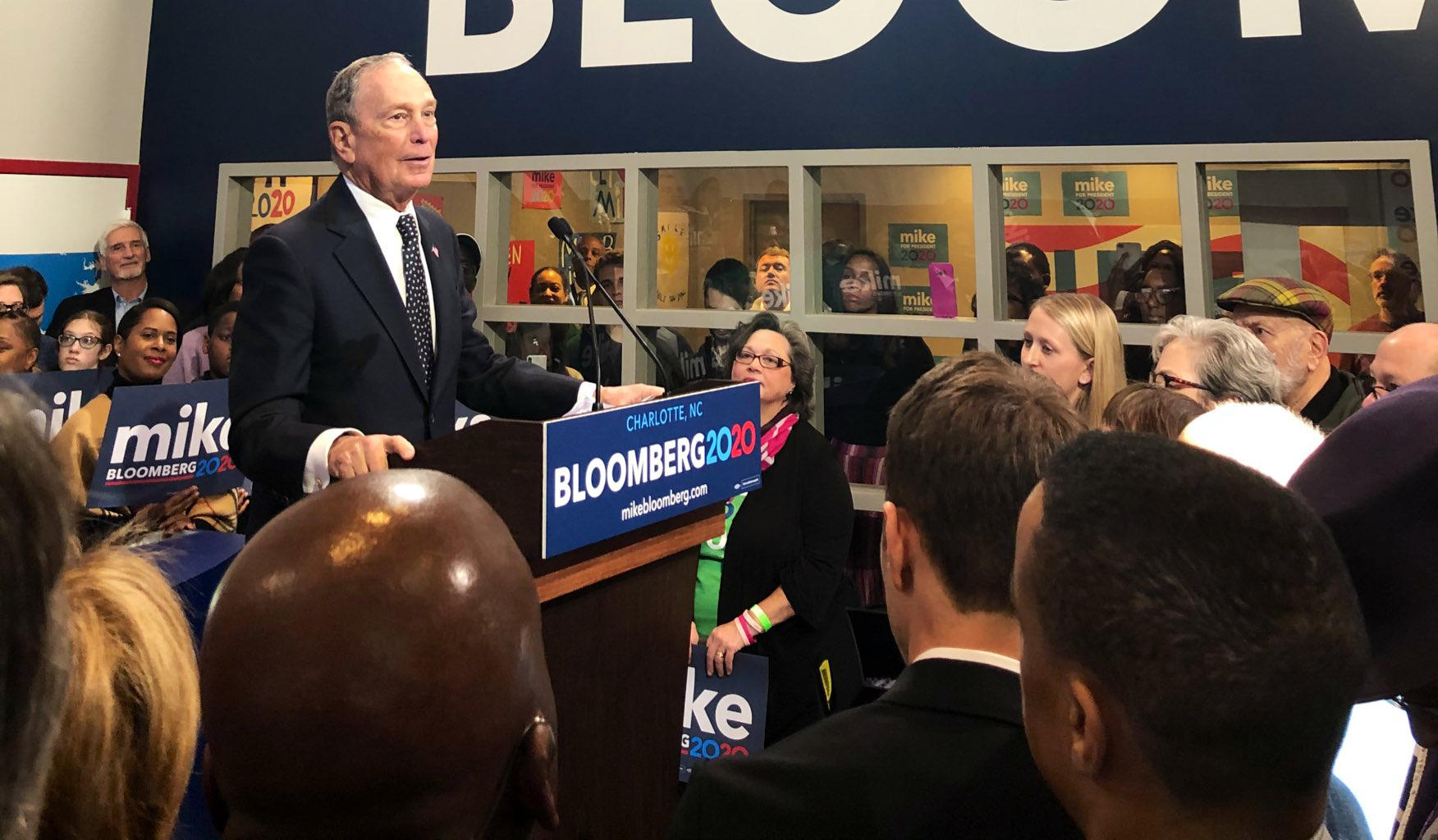While former New York City mayor Michael Bloomberg continues an unprecedented rise in national polls, thanks to his massive personal fortune and decision to drop millions of dollars in advertising all over the country, he still remains absent from the Democratic debate stage. Bloomberg has said he’d willingly join the stage, but since he doesn’t solicit individual donations, DNC rules preclude his presence since he hasn’t met their donor requirements.
As a result, Bloomberg remains on the sidelines of the debate stage but is competing heavily on airwaves and in media with a carpet bomb strategy of plastering his face and message on television screens from Maine to California.
For all this, Bloomberg continues to be rewarded with ever-increasing support, at least in national polls. For example, the latest numbers from Morning Consult now shows Bloomberg topping Pete Buttigieg in fourth place:
Morning Consult National Democratic Primary Poll
Conducted Jan 20-26 | Source
- Joe Biden – 29%
- Bernie Sanders – 23%
- Elizabeth Warren – 14%
- Michael Bloomberg – 12%
- Pete Buttigieg – 7%
- Andrew Yang – 5%
- Amy Klobuchar – 3%
- Tom Steyer – 3%
We speculated earlier this week that it appeared Bloomberg was pulling support away from Pete Buttigieg nationally, and this poll also bears that out. In the early primary states, it’s a different story where Bloomberg remains almost irrelevant. Progressives are weary, however, that Bloomberg continues to ride outside the debate spotlight without having his professional and political career examined by other candidates on a national stage.
As Politico now reports, liberals in the Democratic Party are begging the DNC to alter debate rules and allow Bloomberg to have a podium where, they believe, he can be torn down under the microscope:
Progressive allies of Elizabeth Warren have approached the Democratic National Committee to lobby for an unusual cause: including billionaire Mike Bloomberg in upcoming presidential primary debates.
The move, described to POLITICO by a co-founder of the Progressive Change Campaign Committee, reflects the desire of liberal activists to pin down the former New York mayor, who has avoided verbal combat with his opponents by waging a self-funded campaign that plays by its own rules. But the entreaty also speaks to progressives’ growing unease with Bloomberg’s relative success: After spending hundreds of millions of dollars, he has vaulted into double digits in national polls and amassed a giant staff of A-level operatives.
His rise is now stirring growing anxieties among some of his biggest detractors, who maintain that his white knight pledges should not insulate him from critiques and what they consider a standard vetting process.
“He has a long history of big-money self-promotion, but he wants to play senior statesmen and try to get people to believe he’s just taking one for the team,” said Zephyr Teachout, a law professor who has run for statewide office in New York and is aligned with Bernie Sanders.
“But he’s spending hundreds of millions because he wants the most powerful job in the world, and he needs the full treatment,” she added, pointing to his positions on foreign policy and Social Security and his long mayoral record.
Bloomberg, despite his progressive views and policies on gun control, has some areas which trouble liberals. Specifically, as a proponent of “stop-and-frisk” policies while mayor of New York, has tried to change his views on the policing technique, but most Democrats remain skeptical.
Beyond the policies of his New York mayorship, Bloomberg is a multi-billionaire with money to buy influence, and buy his way deep into the Democratic primary. The current sentiment among most Democrats, and even most voters in general, is that money and politics shouldn’t mix when it comes to providing an unfair advantage or corrupt influence.
Even more recently, the move by Bloomberg to request—and receive—an extension to his financial disclosures which will put the deadline after Super Tuesday in March has also drawn ire from his opponents.
Even some of Bloomberg’s opponents, such as Sen. Amy Klobuchar, want him on the debate stage so he can be pinned down on his flaws rather than launch television ads which paint an unchallenged narrative for him:
On Monday, Bloomberg eclipsed Klobuchar in congressional endorsements, with many of the supporters arguing he’s uniquely positioned to beat Trump in the swing states Democrats need to recapture the White House.
“I’d be fine with him being on the debate stage because I think that instead of just putting your money out there, he’s actually got to be on the stage, and be able to go back and forth so that voters can evaluate him in that way,” Klobuchar told MSNBC’s “Morning Joe” on Tuesday, when asked about POLITICO’s reporting.
Unlike Tom Steyer, Bloomberg’s counterpart billionaire in the race, the former New York mayor hasn’t needed the debate stage to keep him relevant. In fact, Steyer spent so much time and money to get himself on the debate stage and has nothing more than a few percentage points at best in polling support to show for it.
Bloomberg seems to be a different animal, able to peel national support from candidates like Buttigieg, Klobuchar, and possibly Biden, and do so without the aid of a debate appearance.
It’s arguable that at this point Bloomberg and his team see this dynamic playing out, and despite being open to debates, they are just fine with letting the rules stand as they are. At the present time, Bloomberg controls his own message, controls his own messaging, and controls the frequency and tone of that message. Under a debate spotlight, the result could be very, very different.
Donate Now to Support Election Central
- Help defend independent journalism
- Directly support this website and our efforts
